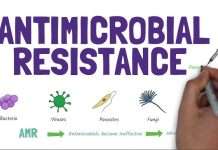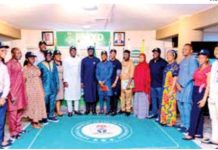
No fewer than 80,000 Nigerians have benefited from the Nigerian Institute of Medical Research’s (NIMR) efforts to reduce the prevalence of infectious diseases, particularly through the screening and diagnosis of HIV and COVID-19, the Director General, Prof. Babatunde Lawal Salako has said. As a reference research centre with an active HIV clinic, the institute played a crucial role in diagnosing the first cases of HIV and COVID-19 in Nigeria.
Prof. Salako emphasised the economic importance of NIMR to the healthcare sector, noting that the institute has tested approximately 65,000 Nigerians for COVID-19 and 25,000 for HIV, benefiting a total of 80,000 people with its homegrown solutions.
In a media chat marking the end of his eight-year tenure, Prof. Salako highlighted the institute’s achievements and challenges.
He noted that NIMR has significantly contributed to building the capacity of over 1,600 healthcare workers, including doctors, pharmacists, laboratory scientists, and students.
“NIMR, being an HIV research centre and also running an HIV clinic programme, has screened over 25,000 patients in recent years. We also collaborated with the NCDC, Lagos State Government, and private organizations like LifeBank to establish the COVID-19 drive-through and walk-through testing centers, which tested about 65,000 Nigerians,” he said.
Prof. Salako explained that at the cost of N50,400 per COVID-19 test, substantial government and supporter contributions were essential to the success of these efforts. The institute developed two COVID-19 test kits and some extraction kits required for diagnosis beyond COVID-19, introducing innovations like do-it-yourself testing.
“Now, at the cost of N50,400 per COVID-19 test, you can imagine how much government and other supporters of ours should have put into that effort to make it a very successful one. Again, with that knowledge of the circulating variants, we were able to develop test kits for diagnosing COVID-19 at the time. We developed two test kits”, he affirmed.
The NIMR DG continued: “Over the past eight years, I can tell you that we’ve trained over 1,600 people, including students, doctors, pharmacists, laboratory scientists, etc. So our institution really has made its mark, even when we talk about training. And knowing fully well that government alone cannot sponsor or fund research, even though we expect more from government.
“And beyond that, the institute played a very significant role in terms of training the national workforce for the control of HIV. It played an important role in determining the efficacy of some antiretroviral drugs, especially when generic antiretroviral drugs were going to be introduced to Nigeria”, he stated.
Salako also highlighted other milestones achieved during his tenure, such as developing one to two minute test kits, using dispatch riders for kits delivery, diagnosing and treating multidrug-resistant TB, and discovering a new urban malaria vector.
Despite the progress, the NIMR DG mentioned challenges such as staff attrition, limited cancer research, and inadequate funding. He stressed the need for more researchers to work on larger cancer studies to prevent a double burden of the condition. “We can’t wait until it becomes a double burden. We plead for expansion in cancer research,” he said.
While applauding the government for increasing the institute’s allocation from N50 million to N20 billion, he emphasised the need for a research funding agency to support the Nigerian health system with funding for homegrown solutions.










